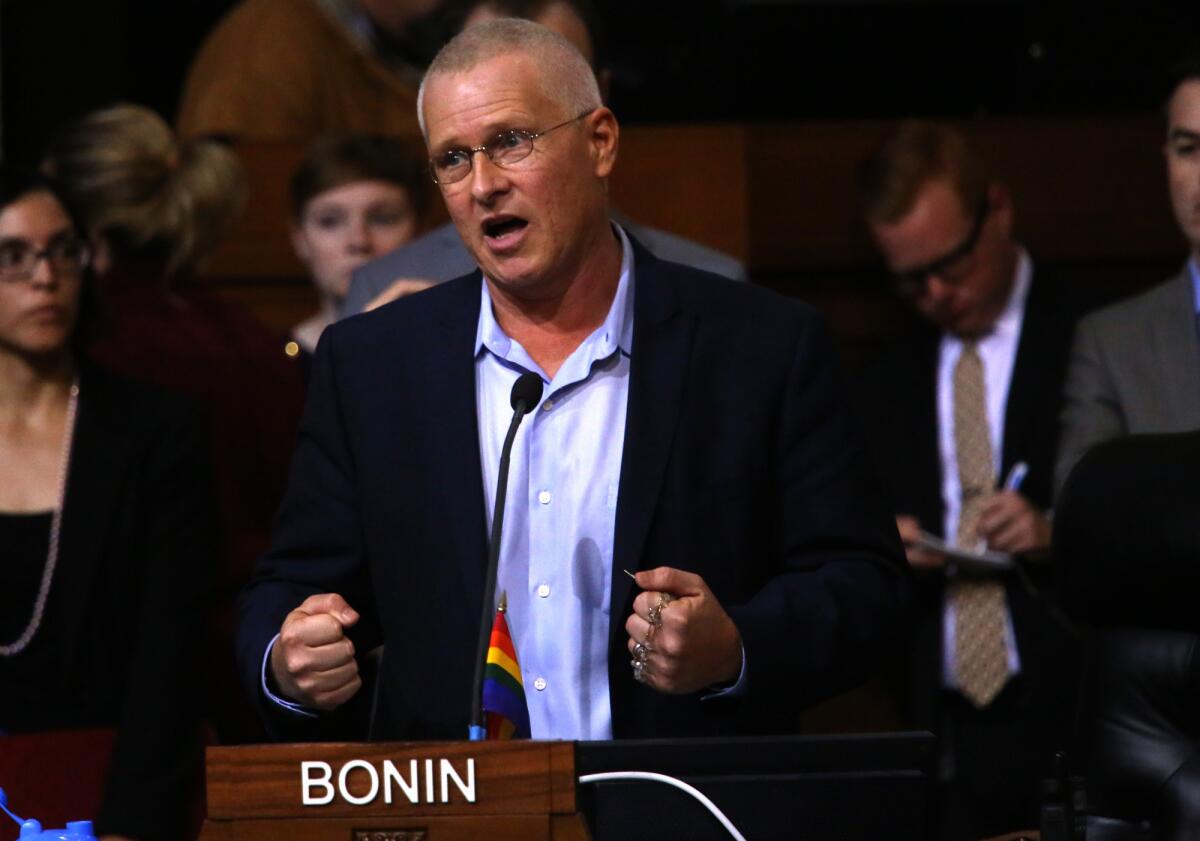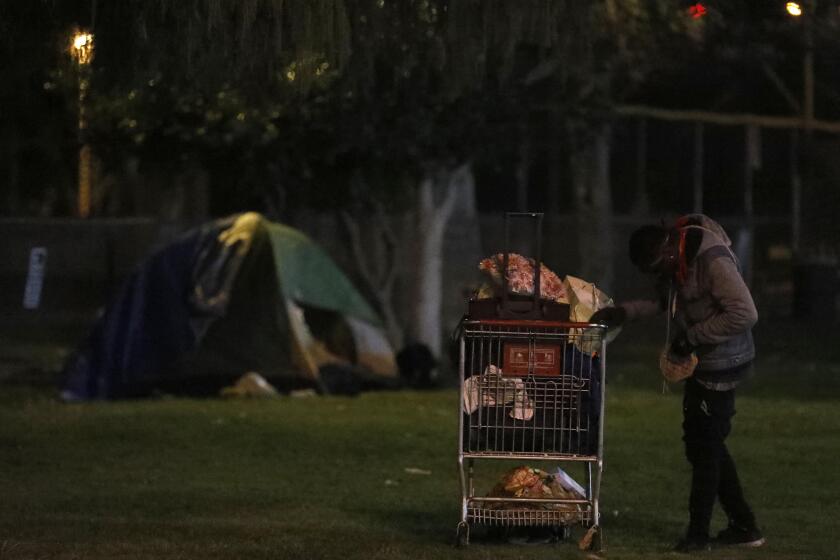Rent hikes could be smaller for L.A. tenants under new plan at City Hall

- Share via
Alarmed about people being “squeezed out” of their homes, Los Angeles City Councilman Mike Bonin wants to clamp down on rent increases for hundreds of thousands of tenants, tightening the rules under a long-standing city ordinance.
Decades ago, Los Angeles decided to limit how much rents could be hiked annually for tenants living in older buildings. Under the Rent Stabilization Ordinance, annual increases are based on the consumer price index — a typical measure of inflation — and capped at 8%.
Even if there is little inflation, however, landlords can still increase rents by 3% a year. Tenant activists complain that in the aftermath of the recession, those hikes have routinely outpaced inflation. Bonin said other cities with rent control — including San Francisco and Santa Monica — do not allow the same minimum hikes.
In Los Angeles, tenants saw that their rents “still went up 3% while their wages and their incomes did not,” said Bonin, who represents Westside neighborhoods including Venice, Mar Vista and Pacific Palisades.
Under a new proposal, Bonin wants to adjust those rules so that landlords can no longer boost rents by 3% even when inflation is much lower, eliminating that floor. His plan would cap annual increases at 60% of the consumer price index.
Changing the rules could affect tenants in roughly 600,000 apartments covered by the Rent Stabilization Ordinance, which generally applies to buildings constructed on or before Oct. 1, 1978.
The Times is launching a new section on latimes.com to bring together our best coverage to date on both homelessness and housing.
Bonin argued that it was an important step that L.A. officials could take to “protect renters from being gouged,” even under the restrictions of the Costa-Hawkins Act, a state law that limits the establishment or expansion of rent control in California cities. Tenant advocates lauded the proposal, saying it was needed to keep renters in their homes.
For low-income tenants, “if the wage isn’t keeping up with the rent increases, they’re making decisions about whether to pay for a doctor’s appointment or medicine,” said Joe Delgado, director of the L.A. chapter of the Alliance of Californians for Community Empowerment. Changing the rules will help them “feel secure that they’ll be able to keep up with rents in their rent-controlled buildings.”
Daniel Yukelson, executive director of the Apartment Assn. of Greater Los Angeles, argued that the new proposal was “just more ratcheting down on the same failed, decades-old housing policies that have gotten us into our current situation.”
Mom-and-pop landlords “are already struggling to stay in business,” Yukelson said. If they get bought out, “these larger owners come in and they buy the tenants out of these rent-controlled units and rehab these buildings and charge market rents.”
Yukelson argued that instead of clamping down on rent increases, the city should focus more on other initiatives, such as converting motels into housing and making it cheaper to build affordable units.
The new proposal was unveiled Wednesday as part of a package of initiatives that Bonin described as a local version of the Homes Guarantee, a national plan backed by tenant activists focused on access to safe, accessible and affordable housing.
The councilman also wants city officials to explore the idea of “social housing,” which he described as mixed-income housing, built on government property or vacant land close to transit and amenities, that finances itself by tenants paying rents on a sliding scale.
Bonin also wants the city to demand more transparency from limited liability companies, which do not have to publicly reveal who owns them, if those LLCs are buying homes in Los Angeles. And he is pushing for the city to throw its support behind federal bills that would invest hundreds of billions of dollars in public housing.
Tenant activists, community groups and members of Unite Here Local 11, a hotel workers union, joined Bonin at a news conference Wednesday ahead of the council meeting at which Bonin introduced his proposal.
“Increasing rents are the greatest threat to our members,” said Vicky Beza, a member of Unite Here Local 11. “We need to be able to stay in our community.”
Times staff writer David Zahniser contributed to this report.
More to Read
Sign up for Essential California
The most important California stories and recommendations in your inbox every morning.
You may occasionally receive promotional content from the Los Angeles Times.








